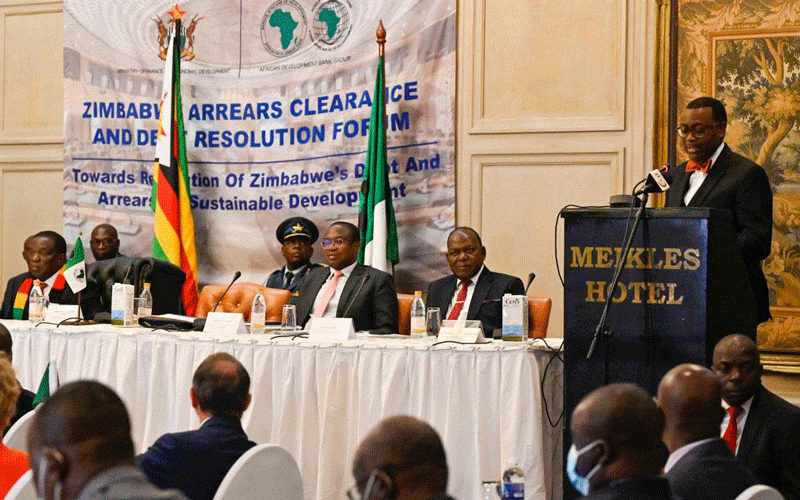
THE fifth edition of the Zimbabwe Debt Conference to be hosted by civic organisations will be held from May 17 to 19 at a time when government is struggling to service both its domestic and foreign debts.
The national debt is currently estimated to be close to US$20 billion which includes resource-backed loans with China and the African Import Export Bank, multilateral partners and domestic lenders.
According to the International Monetary Fund, the country’s debt as a percentage of the gross domestic product (GDP) is 102,3% with the fund placing Zimbabwe’s GDP at US$29,93 billion.
The Zimbabwe Coalition on Debt and Development (Zimcodd), Southern Africa People’s Solidarity Network and the African Forum and Network on Debt and Development will be hosting the conference.
In a statement, Zimcodd said the planned event brought multi-stakeholders including government, development partners, Parliament, media, civil society, academia, private sector and think tanks together to deliberate on debt and development.
“Zimbabwe has been struggling to resolve the debt burden for an extended period of time dating backing to 2000. Currently, the country’s debt is estimated at $10,97 trillion (US$17,6 billion) as of November 2022 which represents a 477% increase from the 2021 figure. Accumulation of arrears and penalties contributes 76% of external debt which then requires urgent debt resolution,” Zimcodd said.
“In addition, the country continues to be haunted by high inflation (real annual food inflation rate in January 2023 was 121%, the highest in the world), exchange rate instability, unemployment (19,1% as of January 2023) shortages of power and disruption in supply chain due to Russia-Ukraine War which has seen prices of fertiliser, fuel and wheat going up.”
However, Zimcodd said on a positive note government had been revising contracts suspected to have been over-priced and continues to blacklist service providers who change money on the black market.
- Dual economy Zim’s Achilles heel
- Village Rhapsody: How Zimbabwe can improve governance
- Dual economy Zim’s Achilles heel
- Scrap IMTT to save industry, govt urged
Keep Reading
“This has helped the country to realise value for money and also stabilise the exchange rate. The bulk of the IMF Special Drawing Rights have been allocated towards revolving facilities for productive sectors so as to improve productivity,” Zimcodd said.
“The government of Zimbabwe is also heavily investing in mega infrastructure projects to remove bottlenecks and encourage investment. In the short to medium term citizens may have to pay more taxes to service the debt before returns start to trickle down.”
To date, three high-level policy dialogue sessions with creditors have been held.
The Zimbabwean government began implementing the debt settlement strategy by roping in the assistance of former Mozambique President Joaquim Alberto Chissano, and African Development Bank (AfDB) president Akinwumi Adesina.
In addition to facilitating a high-level policy debate on arrear clearance, the AfDB has helped organise three working groups on economic growth and macroeconomic stability, governance, land reform and compensation.






